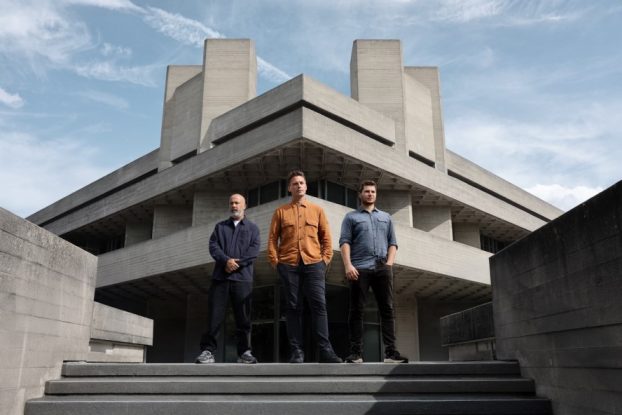Lileo is exactly the type of artsy, lifestyle-focused, urban chic store you’d expect to find in Toronto’s next ‘it’ address, the Distillery District. It’s airy, infused with natural light and cheekily named after 17th century Italian mathematician and astronomer Galileo. Even its branding was inspired.
‘Coming from a yoga background, we were looking to brand the store with the themes of light and discovery,’ said Syd Beder recently, with the paced, tranquil tone
befitting the co-owner and
creator of a zen-like space. ‘When we had our
branding meetings, I asked people to stand on their heads to look at the world differently.’
Whatever his methods, the 52-year-old Beder knows a trend when he sees one. He, along with partner Alexandra Morgan, was responsible for importing yoga apparel retailer lululemon to Toronto over two years ago.
That store found its home on the trendy Queen Street West strip and, with it, massive success – $3 million in sales in its first year – about double what they had expected. (They eventually sold back the licence to the original owners of the Vancouver-based chain.)
Lileo is also a hit, raking up sales increases of 10% a month since opening seven months ago. It’s had more PR hits than its predecessor, spurred, naturally, by a very organic kind of advertising: ‘It’s totally been word of mouth,’ says Beder.
Even this Christmas’ foray into the ad game will be low key, with ads created by artistic friends Morgan and Anna Potvin and running in Now, Ming Pao and Village Post. Beder describes these publications as decidedly ‘hands-on,’ and for ‘the consumer who wants to know about it before everybody else.’
The rest of their under-the-radar
marketing will focus on the Lileo Web site, which will sell items online and should be up and running in the new year.
After 29 years in the retail game – and a not-so-shabby track record of nabbing the trends before they become trends – you’d expect innovation from Beder. He was ahead of the denim rage when he distributed Big Star Jeans back in the late ’80s, co-founded Indian Motorcycle clothing in 1991, and founded Fashion Cares, that once tiny fashion show that’s now an extravaganza in its 18th year.
Beder says customers are looking for a heightened
in-store experience. In kind, the Lileo customer is
anyone between the ages of 13 and 80 who is interested in fashion, but also the idea of fashion as art,
and is looking to experience something
different. (And, incidentally, is willing
to shell out $110 for a classic Lacoste golf T or $165 for a jean skirt from Parisian brand Acquaverde.)
He’s also convinced that the store’s off-the-beaten-path location, about 20 minutes from Toronto’s downtown core, is a plus. ‘People are willing to explore, challenge themselves,’ he says. ‘[The store targets the] mobile person who is a world traveller. They want to discover.’
So the close to 7,000 sq. ft. store space is not only aesthetically pleasing, but all the merchandise comes with labels describing the history, date and inspiration behind the
product. ‘It’s like an art gallery in way,’ he says. It has a raw food and juice bar (aptly named Livia after Galileo’s daughter) and stocks hard-to-find brands. (Heard of Nike’s White Label? Didn’t think so).
‘Lileo is a space where people can feel
comfortable shopping, where they can take a deep breath, learn and experience,’ says Beder. He adds suppliers like Nike and Penguin have embraced the vision and have been willing to supply lines that are Canadian and/or Toronto exclusives to the store. And what of the reluctant supplier? ‘We move to another vendor,’ he says.
Offering the weary shopper added value to the shopping experience is nothing new. Stores like Shoppers Drug Mart and Caban have in recent years tried to make the
hum-drum shopping experience more dynamic, but Lileo is taking that experience to another level by infusing a bit of spiritualism, and dare we say, morality into the mix.
‘One of the main themes of the store is wellness,’ says Beder. ‘We consider ourselves apart from a lot of stores because we don’t buy merchandise with skulls, guns or cross bones. There’s a prevailing negativism in the fashion industry. We stay clear from that. We’re about positive lifestyle choices.’






















